These Billion-Dollar Women Are Changing The Face of Silicon Valley
"Unicorns"—companies valued at more than $1 billion—do exist, and their female CEOs are sharing how they built their empires.
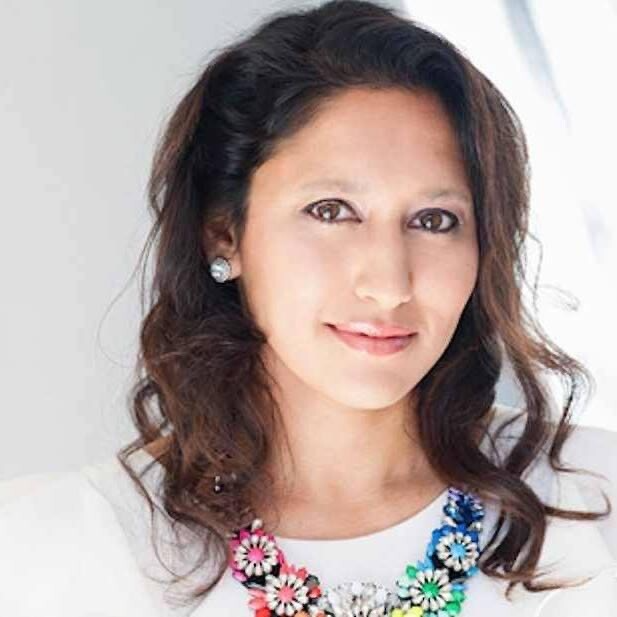
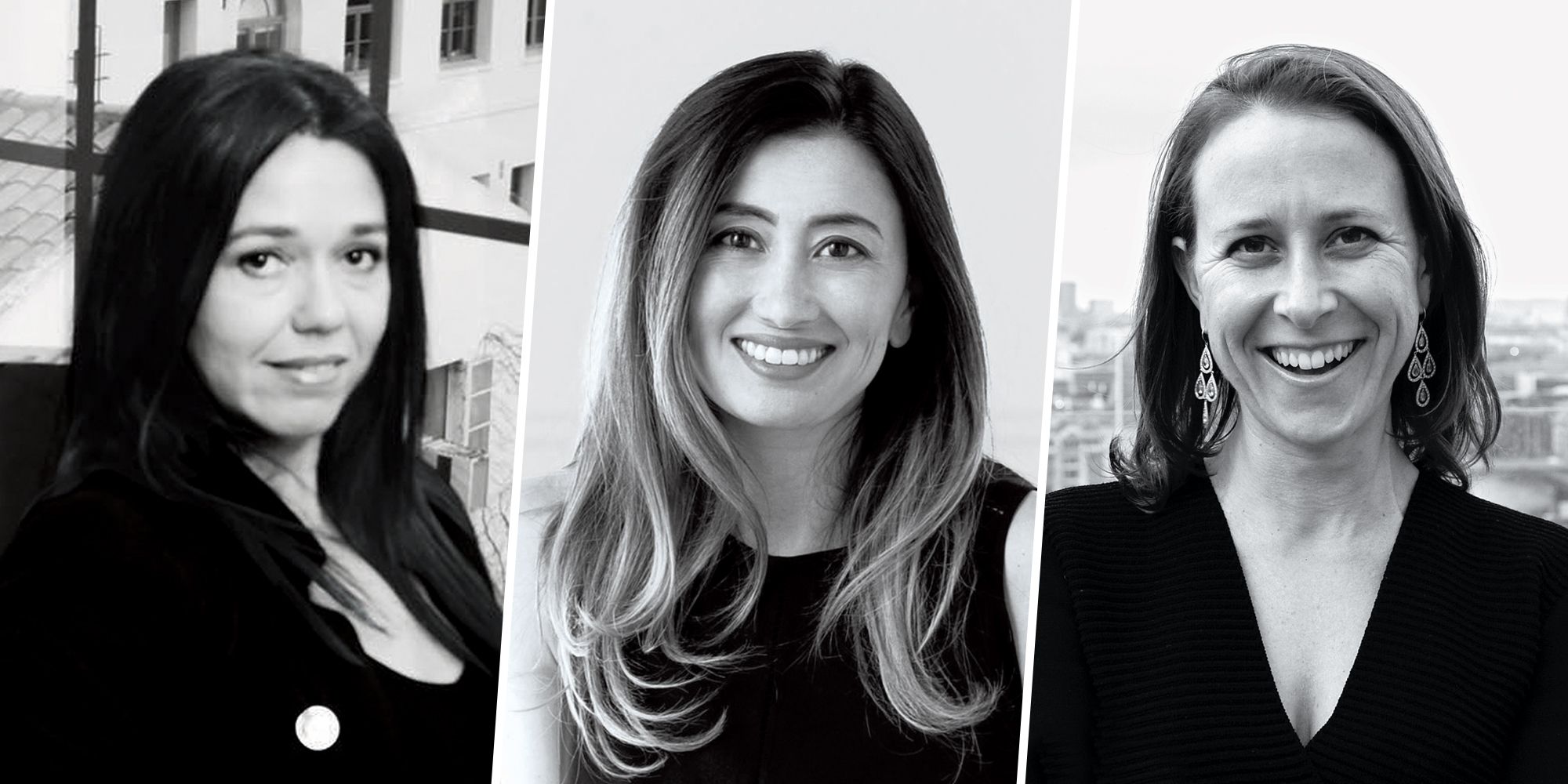
KATRINA LAKE
On November 17, 2017, Katrina Lake cheered behind a podium centered at the Nasdaq MarketSite Studio in Times Square. The words Stitch Fix, the name of the online personal styling service she founded in 2011, were emblazoned on the massive screen behind her as she rang the bell opening the stock market. In that moment, her company was officially public, solidifying rumors about Stitch Fix’s valuation (at the time, $1.46 billion!) and making Lake, 35, a bona fide multimillionaire.
Quite different from Stitch Fix’s early days, when she was running around Boston acting as her friends’ personal shopper. While studying at Harvard Business School—Lake has an undergrad degree in economics from Stanford—in 2010, she realized that many of her classmates loved new clothes but found the experience of browsing department store racks and e-commerce sites tedious and exasperating. There has to be a way to create a shopping experience that is approachable, affordable, and driven by data and algorithms, she thought. Lake tested out her hunch by having friends fill out detailed questionnaires, which she consulted as she shopped for them.
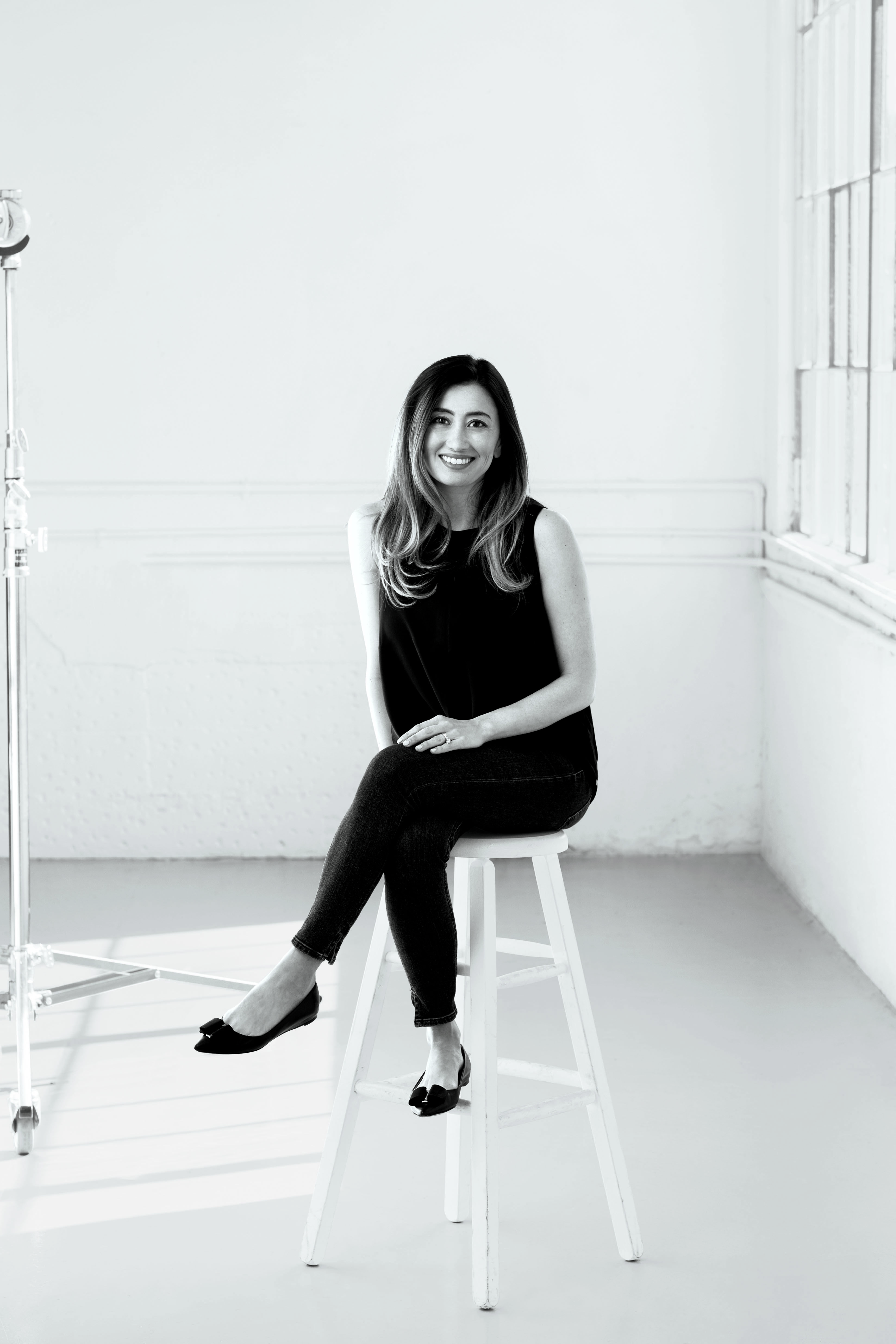
Katrina Lake, CEO of Stitch Fix
People want to optimize their time when it comes to fashion, but they also want to know there is a real human trying to find them the perfect sequined skirt or boyfriend jeans or patent-leather mules. And that marriage of style and data fueled the launch of Stitch Fix in 2011.After setting up profiles online (questions include “Are you more of a jeans/pants & top gal or a dresses gal?” and “How adventurous do you want your Fix selections to be?”), users are connected with a stylist and then receive a box with five pieces monthly, bimonthly, quarterly,or on demand. They try on the items at home, buy what they like (between $20 and $600 per piece), and return what they don’t.
“I have a 13-year-old client right now,” Lake, who still styles five clients a week herself, tells me two months after her IPO. “She is pretty active on Instagram, and it’s super helpful to see her personality there. There’s so much texture a human can interpret in a way that’s really additive to what our data science can do. When clients want denim, I’ll rely more on the data to find if people are curvy or not curvy, and what tends to work better on this size or that size.”
This commonsense-yet-revolutionary approach resonated: Stitch Fix had 2.4 million subscribers in 2017 and currently employs more than 3,400 on-staff stylists.
In some ways, Lake’s success seems to have happened overnight, yet she’s been quietly disrupting the retail industry for seven years and her rise was not without its challenges. Like so many female founders before her, Lake has faced the industry’s biased fundraising shenanigans. The gender dynamics of SiliconValley, she says, crystallized for her at an entrepreneurs’ conference she attended in 2016, where a male investor described how he likes to take meetings: Offices are “stuffy,” he explained; he prefers to hear business pitches in his home hot tub over a couple of beers. “I’m sitting in the audience thinking, I am currently pregnant, and I can’t go in your hot tub, and I can’t drink your beers,” Lake recalls. “I’ve always felt like I’m an independent person that can fight whatever fight on whatever terms, and I can succeed in my own right, but it felt really structural. It felt like because I was physically unable to sit in his hot tub and consume alcohol, I wasn’t going to be in his pipeline of future investments.”
To not have any preconceived notions of how you do things was a benefit for me.
The industry’s sexist behavior is something Lake experienced firsthand. Though she didn’t comment on it, Inc. reported in July 2017that Lake requested in 2013 that one of her board members, Justin Caldbeck, then of Lightspeed Venture Partners, be removed after he sexually harassed her. (Lake signed a non-disparagement agreement regarding her experience; Caldbeck left Lightspeed in 2014 to start Binary Capital and stepped down in mid-2017 after multiple female founders came forward with stories about his inappropriate behavior.)“It’s been so amazing to see such a groundswell of support,” Lake says of the #MeToo movement and the wave of recent conversations about discrimination and harassment. “2017 was about opening up the closet and digging out all the skeletons. I hope that 2018 is about, ‘Now what are we going to do?’”
Stay In The Know
Get exclusive access to fashion and beauty trends, hot-off-the-press celebrity news, and more.
Still, she says her underdog status helped her enter the industry with a fresh perspective. “Yes, I went to Stanford,” she explains, “but I didn’t work at PayPal and then have a lot of engineer friends who wanted to start a company with me.” One of Lake’s earliest jobs out of college was at a venture capital firm; she was close to the world of entrepreneurship, but as an outsider looking in. After getting her MBA and knowing she wanted to start a company, she had to build her network from the ground up. “I joke about how I looked at LinkedIn like it was the Yellow Pages. Like, ‘Oh, who would be interesting to talk to to understand data science?’ To not have any preconceived notions of how you do things was a benefit for me. It freed me of any bias that might sway me to do things the way they’ve been done before.”
Lake is certainly doing things in new ways.“I do feel a great responsibility, being a relatively young female who’s also a mom and the CEO of a publicly traded company, to exact positive change,” she says. As she rang that Nasdaq bell, the only woman to take a tech company public in 2017, she stood next to her husband and cradled her 1-year-old son on her hip, a model of the tech industry’s new generation of leadership.
—Rachel Syme
ADI TATARKO
Fabric swatches and paint samples and dangling wires and exploding pipes. Renovating a home is enough to drive anyone crazy. But in Adi Tatarko’s case, it sparked a billion-dollar idea.
Tatarko, now 45, and her husband, Alon Cohen, purchased a three-bedroom ranch home on a tree-lined street in Palo Alto, steps away from Stanford University’s idyllic campus. In 2006, having moved from Israel to the States six years earlier, Tatarko was an adviser at a boutique investment firm, and her husband was a senior engineer at eBay. With two sons under the age of 5,they were ready to build their forever home, but the process of finding the right professionals to bring their vision to life struck both Tatarko and Cohen as unnecessarily antiquated.
They hatched the idea for Houzz, an online mecca of millions of beautifully designed, shoppable photos of home design projects. For designers, contractors,and other professionals, Houzz is a way to display and promote their work to the site’s community. For anyone wanting to remodel their home, Houzz is a place to brainstorm project ideas and search for contractors, decorators, and home improvement experts to make their dreams reality. The site has attracted over 40 million users a month, including celebs like Kristen Bell and Mila Kunis (they’ve both appeared in renovation videos on Houzz’s website),and raised more than $600 million from investors,valuing the company at about $4 billion and making it the most valuable private U.S. tech company run by a woman.
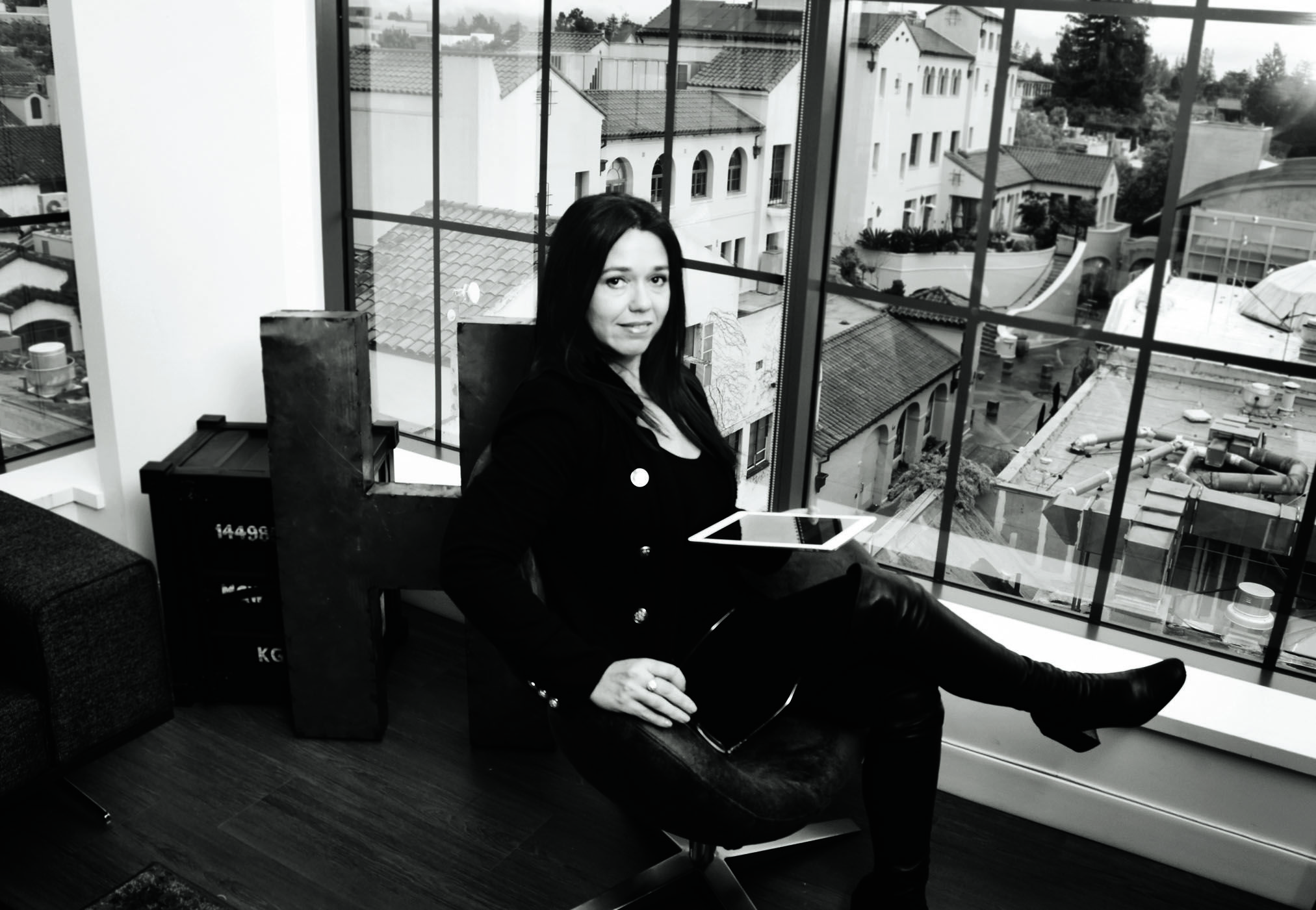
Adi Tatarko, CEO of Houzz
Houzz is all about turning your home into a nest—a place you rarely want to leave. Tatarko’s passion for her own home life, says Houzz’s first investor, Oren Zeev, pulses through the company. “She has a very clear vision of what she wants to accomplish, both with Houzz and her family. Her instincts are focused on what really matters, and she’s grounded,” he says. Many technology founders are obsessed with the celebrity status that comes with creating a billion-dollar company; Zeev says Tatarko is one of the few who don’t care. “If Adi had to decide whether to attend a celebrity event or go to a school play, she will go to the school play.”
That attitude is also felt at Houzz’s headquarters. Photos of employees and their families line a massive wall, and there is a 20-foot green slide running from the top floor to the ground. Unlike most SiliconValley companies with the clichéd “office slide,” Houzz’s isn’t for brogrammers; it’s for kids visiting their working parents.
“I’ve interviewed thousands of people in the past eight years. I love the people we hire. Initially, I dedicated 50 percent of my time to the hiring process,” Tatarko says. “On the good side, it helped to build our culture. On the flip side, you get more attached to people, and it’s difficult to admit when someone is no longer the right fit.”
When we got married, I said ‘I don’t know what our life will look like, but it won’t be boring.
So, over the years, she has had to get comfortable with trusting her gut. When Sequoia Capital, one of Silicon Valley’s most revered VC firms, invested in Houzz in 2011, the company already had an engaged community. Naturally, investors pushed Tatarko to find ways to monetize it. “We said no. We focused on hiring and building product and user experience first. Revenue channels were born when the community asked,” she says. In 2013, Houzz launched a local marketing and subscription service for professionals and, in 2014, the company introduced a marketplace that allows both individuals and businesses to sell products. “We can’t develop everything users want, but when we see strong demand, we prioritize that for them.”
The only reason Tatarko, Houzz’s CEO, and Cohen, Houzz’s president, are able to work together is because they know how to divide and conquer. “I told Alon when we got married: ‘I don’t know what our life will look like, but I will tell you one thing—it won’t be boring,’” she recalls. There are the normalcies of their lives—shuttling the kids to and from school and basketball practices—but when you’ve built a multibillion-dollar business, you can afford a few luxuries. “I realized that as long as my kids eat healthy food and we have time together, someone else can cook recipes and do the grocery shopping. So I hired someone to do that.” Delegating at its best.
—Leena Rao
ANNE WOJCICKI
Anne Wojcicki and I were supposed to spend the morning riding bikes from her Palo Alto home to the Mountain View headquarters of the genetics-testing company she runs, 23andMe—a seven-mile trek the entrepreneur makes nearly every day. Instead, she’s at home in bed. Wojcicki, 44, hurt her knee surfing a week earlier. Minor surgery followed, and now a recovery. “Surfing was super fun,” she says. “I can’t complain at all.”
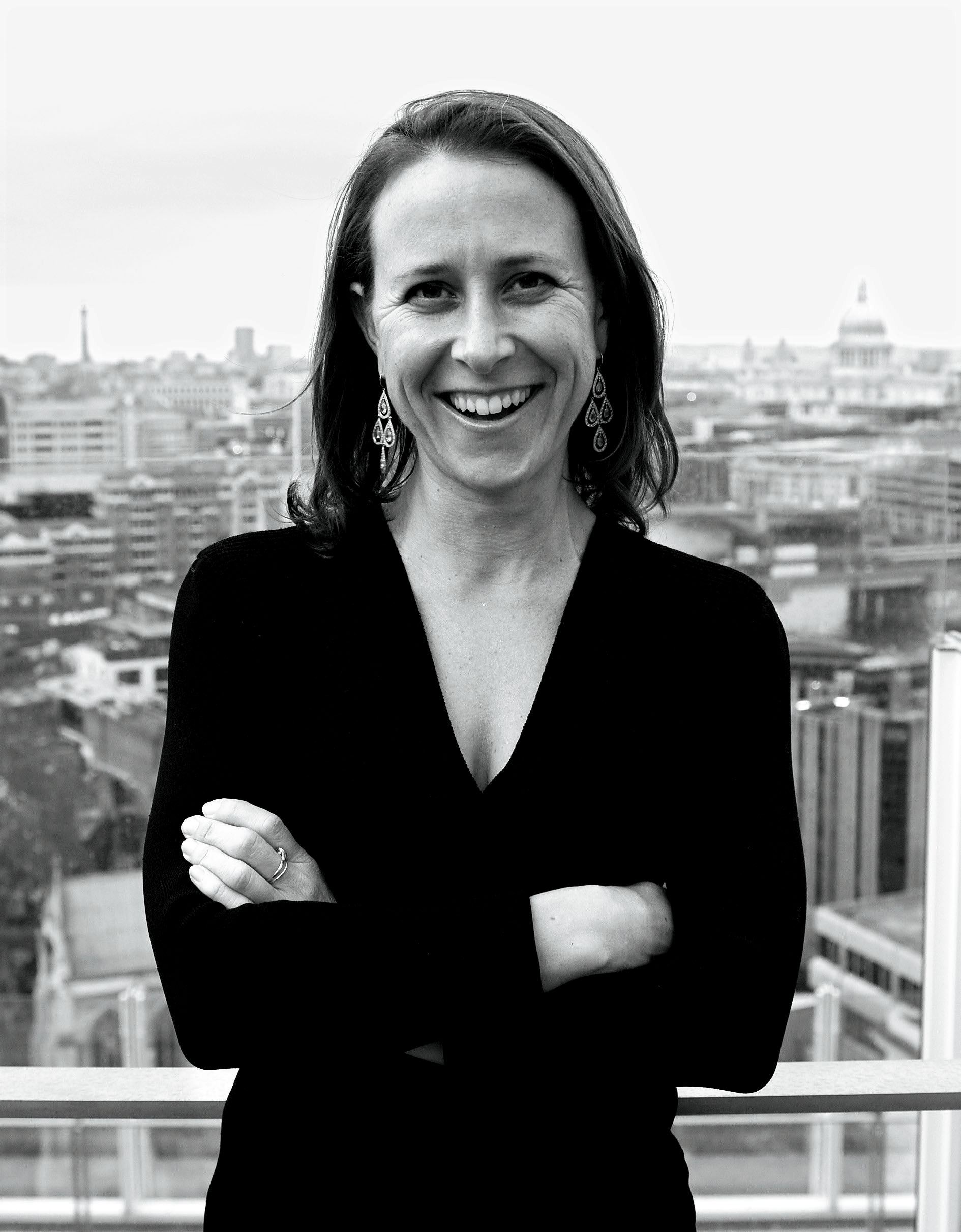
Anne Wojcicki, CEO of 23andMe
A positive attitude in the face of adversity has served Wojcicki well.After graduating from Yale with a biology degree in 1996, she spent nearly a decade as a health-care analyst on Wall Street until she saw a market opportunity and launched 23andMe in 2006. She married Sergey Brin, one of the cofounders of Google, a year later; they remained together until news of his affair with a subordinate became tabloid fodder in September 2013. Two months later, the FDA wrote Wojcicki’s 23andMe team a letter barring them from marketing their disease-risk analysis tools since they weren’t officially approved as“medical devices,” putting operations to a halt. Wojcicki bounced back from her divorce by dating baseball legend Alex Rodriguez for almost a year—and, in April 2017, 23andMe got the FDA’s approval to provide test results on 10 diseases or conditions, including Parkinson’s and Alzheimer’s, making it the first company able to sell such tests directly to consumers. The company’s latest funding round valued it at a reported $1.7 billion.
Wojcicki’s parents, a Stanford physicist and a journalism educator, encouraged her to pursue her dreams. They raised their three daughters(Wojcicki’s oldest sister is Susan, CEO of YouTube, who famously rented out her garage to Brin and cofounder Larry Page to build Google in 1998) in a gender-neutral household on Stanford’s campus. “It was never told to me that women could only do this or women could only do that,”she says. “I’m lucky because I’ve always had the sense of, ‘This is what’s right.’ But the whole world doesn’t necessarily think that way.” This has instilled a sense of transparency and honesty in her personality as a leader. “I was raised by a community of people who were almost excessively transparent. I’d walk into a friend’s house in seventh grade and they’d say, ‘Oh, what a horrible haircut.’ Sometimes a few niceties would be nice,” she says with a laugh. “But people know where they stand, and it makes life simpler.”
It was never told to me that women could only do this or women could only do that.
Which is probably why, when the FDA came after her life’s work,she owned her mistakes. “I’ll never forget the day we received theFDA letter,” says Emily Drabant Conley, a neuroscientist and23andMe’s vice president of business development. “[Wojcicki] called an all-hands meeting and was steadfast and optimistic. She was willing to look at our part in what happened and help us understand what we could have done better.” (During that time, the company doubled down on its ancestry division. For $99, customers learn the geographic origin of their ancestors.)
To date, 5 million people have purchased 23andMe kits—which are sold at retailers such as CVS Pharmacy, Target, Walgreens, andAmazon—and 23andMe has more than 400 employees.
Wojcicki is still waiting to get almost half of 23andMe’s product back (with the exception of the BRCA1 and BRCA2 variants, the FDA has not approved tests for cancer-related genetic variances and pharmacogenomics, which is the study of genetic variations that cause drug reactions). “Just because something is done in a certain way doesn’t mean it’s meant to be that way forever,” she says. “What keeps me up at night is that I have massively meaningful information on my customers, and I can’t tell them yet. We have made huge progress, but we are not done.” So Wojcicki continues her push to make her vision for the future—giving people access to their health data and amassing a database to better understand disease—a mainstream reality.
“As a boss, there is that recognition that you don’t always know what you’re doing,” she says. “But I need to create an environment where everyone flourishes.” That includes her customers. And by giving them more power over their health care, Wojcicki is doing just that. —Maghan McDowell
Want to learn more about the Unicorn Club? Hear from other billion-dollar female founders and venture capitalists here.
This story appears in the April issue of Marie Claire, on newsstands now.
-
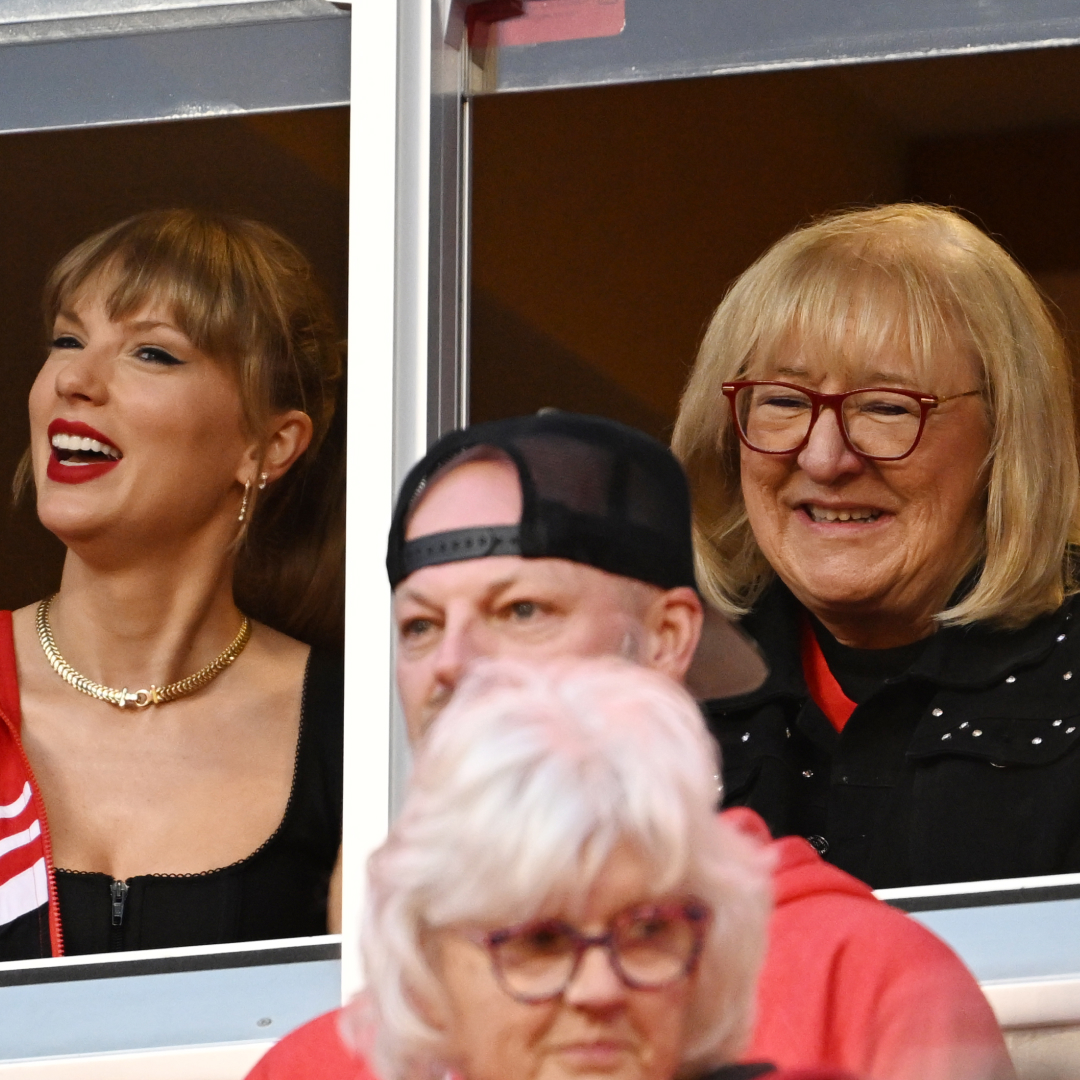 Travis Kelce's Mom Reportedly "Liked" a Comment About His Future as a Dad
Travis Kelce's Mom Reportedly "Liked" a Comment About His Future as a Dad...and then removed it.
By Lia Beck
-
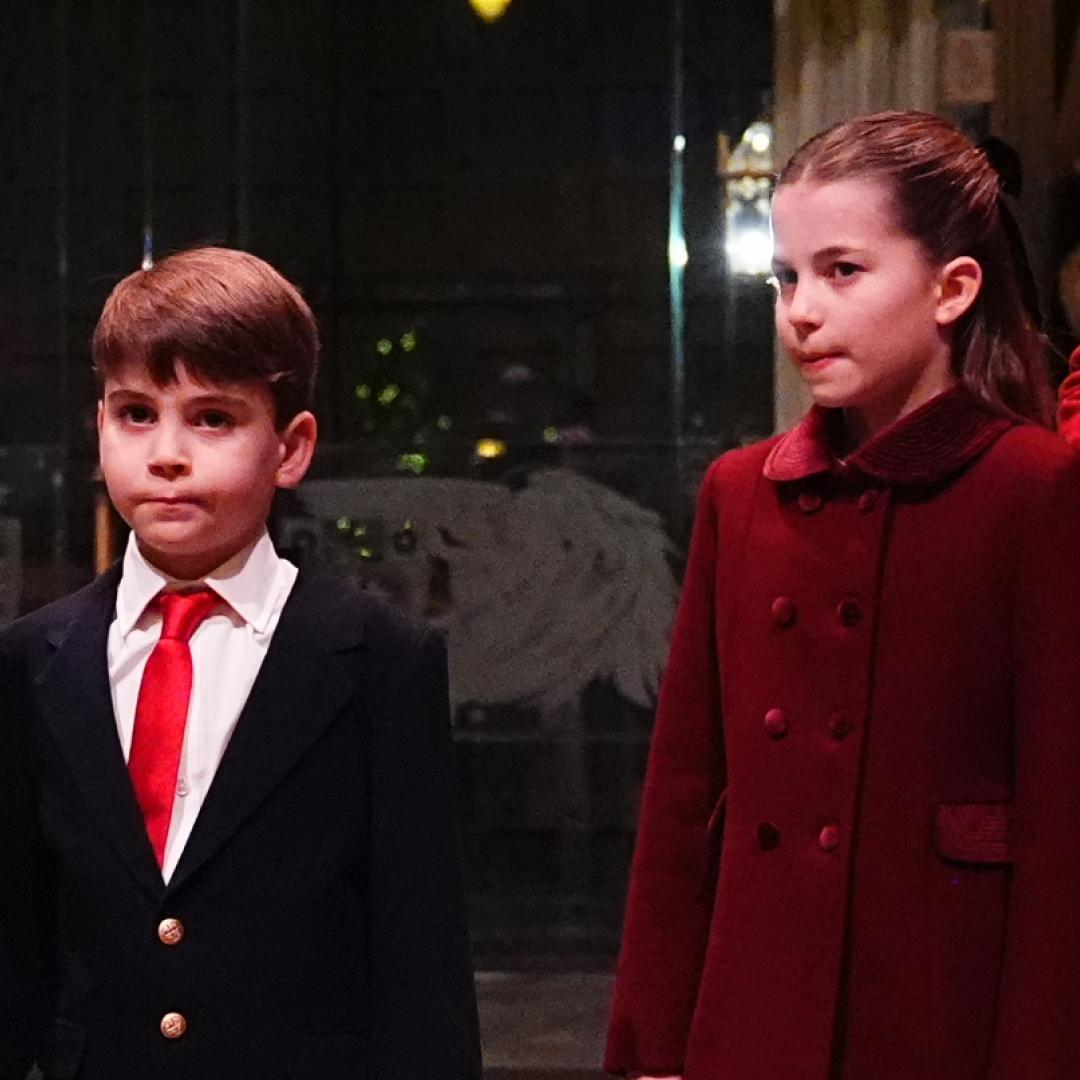 Prince Louis Will Soon Be Allowed a Special Privilege That Prince George and Princess Charlotte Already Have
Prince Louis Will Soon Be Allowed a Special Privilege That Prince George and Princess Charlotte Already HaveThe youngest Wales child will turn 7 on April 23.
By Kristin Contino
-
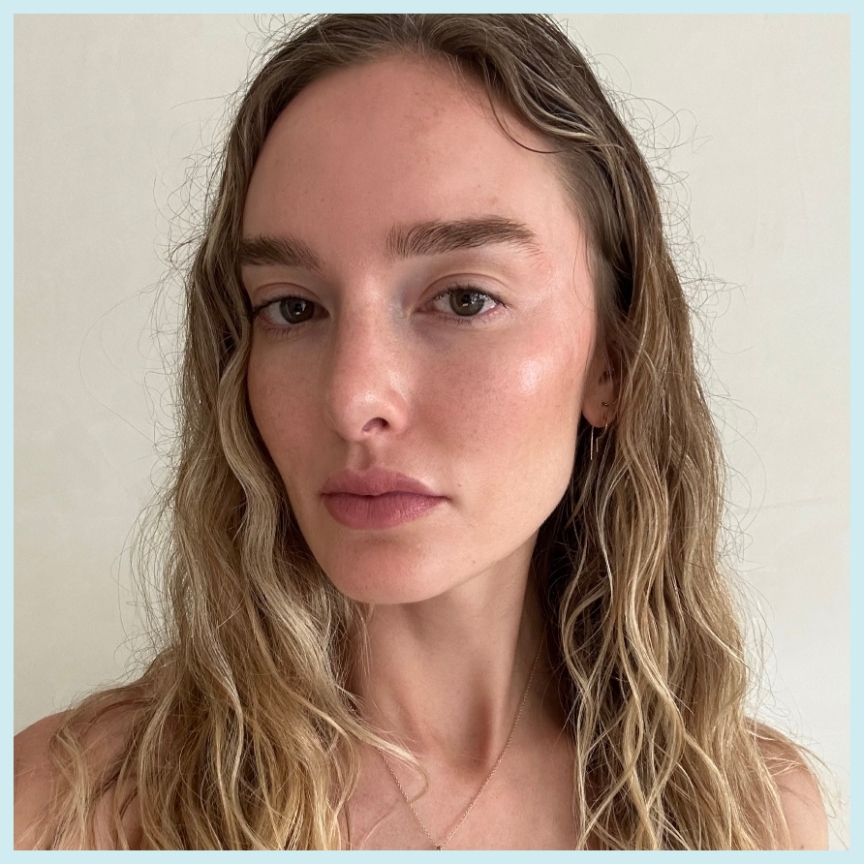 $20 and 30 Minutes Is All You Need for a Vacation-Level Glow
$20 and 30 Minutes Is All You Need for a Vacation-Level GlowSelf-tanner secrets, according to a beauty director.
By Hannah Baxter
-
 Peloton’s Selena Samuela on Turning Tragedy Into Strength
Peloton’s Selena Samuela on Turning Tragedy Into StrengthBefore becoming a powerhouse cycling instructor, Selena Samuela was an immigrant trying to adjust to new environments and new versions of herself.
By Emily Tisch Sussman
-
 This Mutual Fund Firm Is Helping to Create a More Sustainable Future
This Mutual Fund Firm Is Helping to Create a More Sustainable FutureAmy Domini and her firm, Domini Impact Investments LLC, are inspiring a greater and greener world—one investor at a time.
By Sponsored
-
 So Your Company Is Diverse, Now What?
So Your Company Is Diverse, Now What?Morgan DeBaun, CEO and co-founder of Blavity, shares her best advice for running a multicultural company.
By Morgan DeBaun as told to Maria Ricapito
-
 The Competition for Creators
The Competition for CreatorsCreators hold more power than ever—and companies are taking stock.
By Rachel Epstein
-
 Power Players Build on Success
Power Players Build on Success"The New Normal" left some brands stronger than ever. We asked then what lies ahead.
By Maria Ricapito
-
 Don't Stress! You Can Get in Good Shape Money-wise
Don't Stress! You Can Get in Good Shape Money-wiseFeatures Yes, maybe you eat paleo and have mastered crow pose, but do you practice financial wellness?
By Sallie Krawcheck
-
 The Book Club Revolution
The Book Club RevolutionLots of women are voracious readers. Other women are capitalizing on that.
By Lily Herman
-
 The Future of Women and Work
The Future of Women and WorkThe pandemic has completely upended how we do our jobs. This is Marie Claire's guide to navigating your career in a COVID-19 world.
By Megan DiTrolio